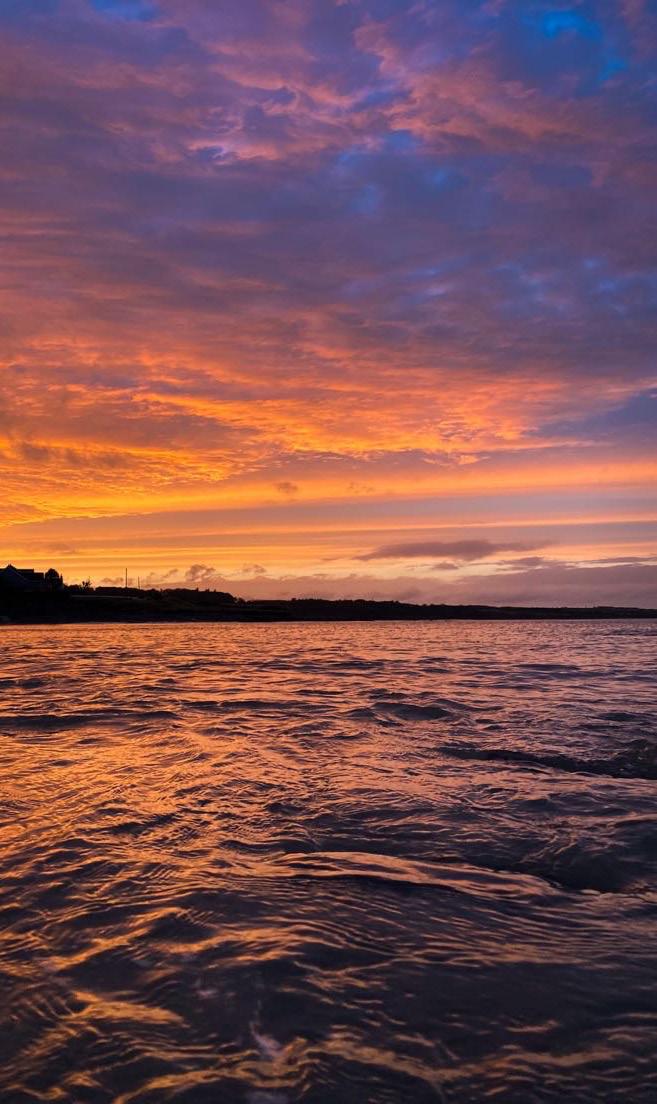Page 83
Interview
Interview with Trinity Professor and Co-Founder of Natural Capital Ireland, Jane Stout By Dylan Krug, JS Environmental Science Natural capital accounting is a concept that treats natural resources as assets or stocks that yield a flow of benefits to people. Viewing natural resources through both economic and ecological lenses is an interdisciplinary process that brings together ecologists, economists, business owners, and policy makers. I spoke with Professor Jane Stout about the natural capital accounting approach to environmental management. Jane Stout is a Professor in Botany at Trinity College Dublin, a co-founder of Natural Capital Ireland and a co-founder of the All-Ireland Pollinator Plan. Natural Capital Ireland has partnered with Trinity College, University College Dublin, NUI Galway, University of Limerick, and the IDEEA Group in a project called Irish Natural Capital Accounting for Sustainable Environments (INCASE), a program building natural capital accounts in four Irish catchments. Ecosystems and Economies are two very complicated systems, how do you study and communicate their interactions without oversimplifying? That’s a great question, and the answer is that it’s hard. Economists and ecologists have different conceptual backgrounds in different languages, but as ecologists what we do is we study and try to understand the complexities of nature. We look at how ecosystems work, we look at the behaviours and interactions of the systems components, we look at production, distribution, and consumption of goods and services. These are all exactly the same principles that economists study. The approach of ecologists and the approach of economists aren’t that far apart, but we’ve been working very separately and using these different philosophies and languages. So for real sustainability ecologists and economists need to work together because nature’s economy, our ecosystems, underpin everything. By understanding nature’s economy by working with economists who understand the human economy we can bring these systems closer together because if they are not aligned then it’s bad news for both. Through the work on Natural Capital Ireland and through the INCASE project we are learning how to study and communicate clearly across disciplines. We are learning how to do this clearly and without dumbing it down. It is complicated, it takes effort, it takes time, but it’s really exciting. I’m an ecologist, I can appreciate that ecosystems are these networks of interactions where something changes over here and you don’t know what the consequences are, it’s the same in economics and economic systems. You can see that the consequences of one unexpected change can ripple throughout different systems. People tend to misunderstand the natural capital approach when first learning of it. For the benefit of our readers, could you address the concerns that natural capital accounting commodifies nature and disregards nature’s intrinsic value? Yes, absolutely, that’s something we absolutely encounter. As an ecologist promoting the natural capital approach some of the fiercest criticisms I get are from my side of the house, from those with an ecological or conservationist background. Just to be clear, the natural capital approach uses the language of economics and business specifically to engage those audiences that aren’t intrinsically interested in nature. Natural capital accounting is an economic metaphor for nature, and the concept is all about linking underlying nature as stocks from which flow goods, services, and benefits to people. So it’s all about linking nature and people, it’s a human centric concept but it doesn’t commodify nature. This is very important, it’s about valuing nature, not putting a price tag on it. Those




















